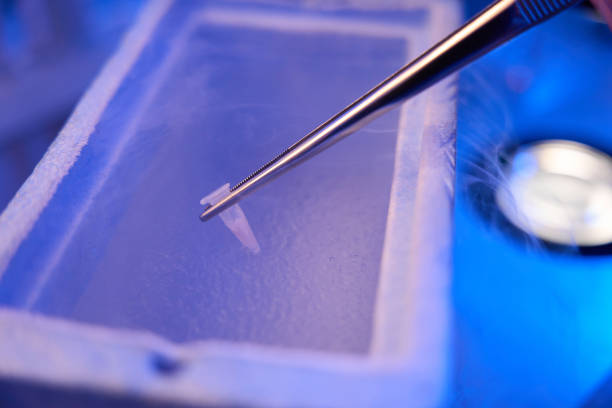In the realm of assisted reproductive technologies, embryo freezing has emerged as a beacon of hope for individuals and couples navigating the complexities of fertility challenges. This article explores the significance of embryo freezing, shedding light on the process, the transformative impact it has on fertility treatments, and the ways in which it provides a guiding light on the path to parenthood.
Understanding Embryo Freezing:
Embryo freezing, scientifically known as cryopreservation, is a groundbreaking technique within the field of assisted reproductive technology (ART). It involves preserving embryos at sub-zero temperatures, typically following in vitro fertilization (IVF) treatments. This process allows individuals and couples to store viable embryos for future use, offering a strategic approach to family planning and increasing the chances of a successful pregnancy.
The Embryo Freezing Process:
- Ovarian Stimulation and Egg Retrieval:
The journey begins with ovarian stimulation, where fertility medications are administered to stimulate the ovaries. During a minimally invasive procedure, multiple eggs are retrieved from the ovaries for fertilization. - Fertilization and Embryo Development:
The retrieved eggs are fertilized with sperm in a controlled laboratory environment, giving rise to embryos. These embryos are cultured for a few days, allowing embryologists to assess their quality and developmental potential. - Embryo Freezing (Cryopreservation):
Once the embryos reach a specific stage of development, they undergo cryopreservation through a sophisticated process called vitrification. This involves rapid cooling, preventing the formation of ice crystals and preserving the structural integrity of the embryos. - Safe Storage:
The cryopreserved embryos are safely stored in specialized cryogenic containers, ensuring their viability and integrity for an extended period until the individual or couple decides to use them.
Benefits of Embryo Freezing:
- Enhanced IVF Success Rates:
Embryo freezing significantly enhances the success rates of IVF treatments. By storing viable embryos, individuals and couples can undergo multiple IVF cycles without the need for repeated ovarian stimulation and egg retrieval. - Fertility Preservation:
Embryo freezing serves as a powerful tool for fertility preservation. Individuals facing medical treatments, such as cancer, can preserve embryos before undergoing treatment, safeguarding their potential for biological parenthood post-recovery. - Flexible Family Planning:
Embryo freezing provides flexibility in family planning. Couples can delay the embryo transfer to a more suitable time, aligning their family planning goals with their personal and professional circumstances. - Mitigation of Age-Related Fertility Challenges:
For women concerned about age-related fertility decline, embryo freezing offers a strategic solution. Preserving embryos during their reproductive prime helps mitigate the impact of age-related fertility challenges.
Considerations and Limitations:
- Success Rates:
While embryo freezing significantly improves success rates, not all embryos will result in a successful pregnancy. Success rates can vary based on factors such as the age of the woman at the time of embryo creation. - Ethical Considerations:
Embryo freezing may raise ethical considerations, particularly regarding the fate of unused embryos. Transparent communication with fertility specialists and the establishment of clear plans can help address these ethical concerns.
Conclusion:
Embryo freezing stands as a guiding light on the path to parenthood, offering individuals and couples a strategic and empowering approach to family planning. By preserving fertility, increasing success rates, and providing flexibility, this revolutionary technique symbolizes resilience, optimism, and the transformative power of modern reproductive technologies. As science continues to advance, embryo freezing remains a beacon of hope, illuminating the way for those on the profound journey to building families.














